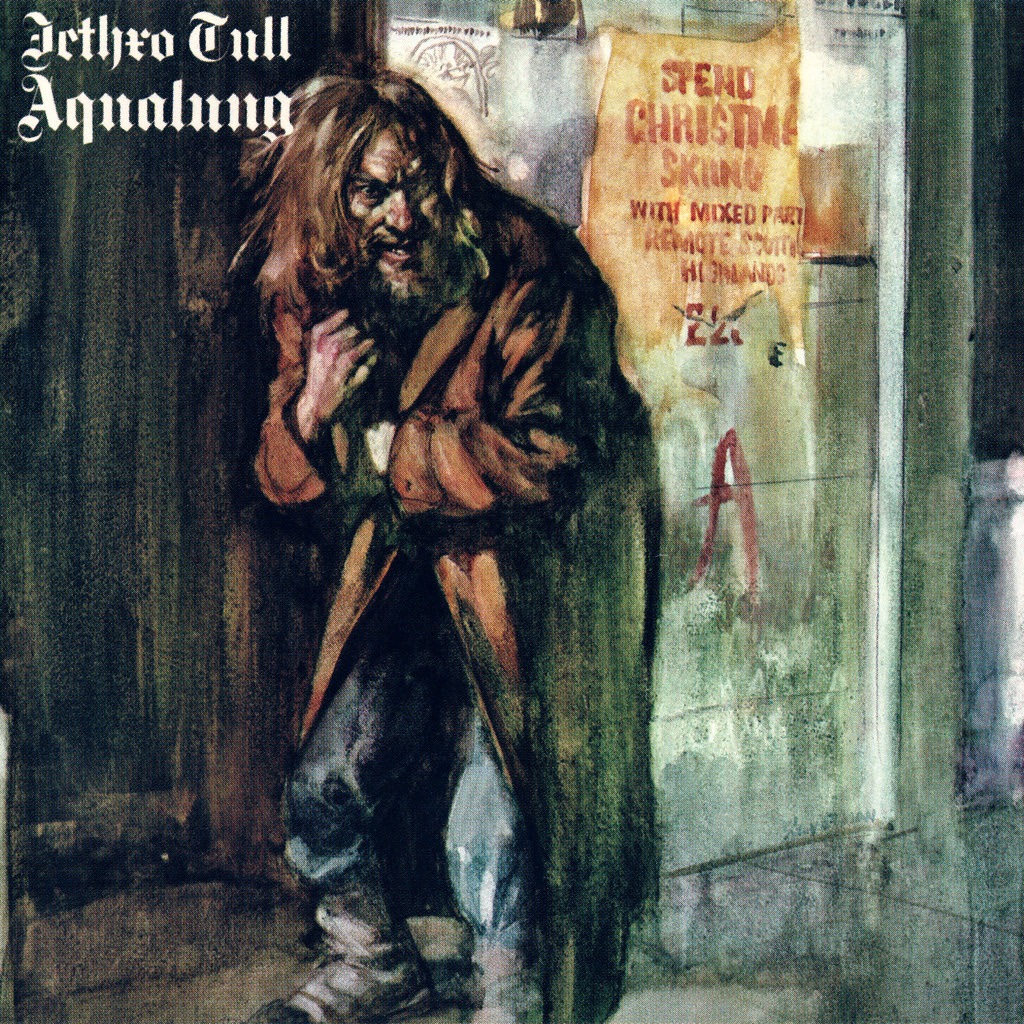One of 1971’s most commendable records: Jethro Tull’s ‘Aqualung’ at 50
Fifty years ago, Ian Anderson and co released an album that would propel the band to new commercial and artistic heights, demonstrated by the critical success and popularity of their follow-up Thick as a Brick (1972). 1971’s Aqualung was produced in a year full of seminal LPs: The Who and Led Zeppelin created some of hard rock’s best ever songs found in Who’s Next and Led Zeppelin IV respectively; Yes and Pink Floyd were establishing the foundation for mainstream progressive rock in their works Fragile and Meddle. David Bowie arguably made his first great album in Hunky Dory, and Marvin Gaye released what Rolling Stone deems to be the greatest album of all time in What’s Going On – 1971 clearly wasn’t a year for slouches. Jethro Tull’s project provides a successful mix of folk, progressive, and hard rock with difficult concepts regarding faith interspersed with detailed character studies, laced with their trademark flute sounds.
The hard rock on Aqualung is legendary: the opener and title track undoubtedly exemplifies this, being universally considered the group’s best track. With no flute in sight, ‘Aqualung’ is an episodic, progressive rock character study of a homeless man surviving the streets of London. Brilliant from start to finish, the unforgiving, catchy, heavy riff sets the tone for the first and last segments, whilst the more melodic and acoustic passages are delightful with lyrics like: “Sun streaking cold, an old man wandering lonely” being some of the most empathetic lines on whole LP. ‘Locomotive Breath’ is sublime in its aggression, as the band doesn’t let up once the song kicks into gear after the ambling yet tuneful piano intro. The flute solos are in full voice, and the instrumental undeniably matches the impending doom and relentless momentum found in lyrics that chronicle an unavoidable, imminent trainwreck.
Aqualung’s folkiness provides the project with much beauty and quaintness too. The melodicism becomes more pronounced on numbers like ‘Mother Goose’, with the harmonies soaring at the chorus. The song is complimented nicely by the fluttering flute, and also built on skilled acoustic, finger-picking guitar. Shorter tracks like ‘Wond’ring Aloud’ and ‘Cheap Day Return’ are welcomed supplements for the longer and heavier songs on this project. The string arrangements found in the former are lovely, especially in tandem with Anderson’s sweet and gentle vocal melodies. The latter’s brevity is oddly refreshing as it’s an obvious example of poetry being set to music – only one verse populates the rustic soundscape, and its shortness embodies a passing thought one may have whilst waiting for a train home.
It’s a project that displays a band with a clear identity, and an illustration of the multi-faceted, perceptive nature of their frontman
It’s apparent that the unapologetic Britishness in Anderson’s songwriting approach, in its folk and traditional song roots (Anderson is Scottish after all), makes this album admirable in its individuality. The lyrical content is reminiscent of late 60s bands like The Kinks and The Small Faces due to the focus on the experiences and stories of common people.
There are pleasantly straightforward songs here as well. With ‘Hymn 43’ Jethro Tull is rocking out: piano shuffles, bass runs, and expressive drum fills are in abundance. A single which has Anderson criticising people using Jesus as a crutch for their inexcusable behaviour, its rebuking nature is nicely tempered by its rich grooviness, making any potential for abundant preachiness dead in the water. The next song, ‘Slipstream’, is another lighter, textured track which emphasises how the project is well balanced and paced. Though the closer, ‘Wind-Up’, effectively encompasses the sentiment of the album. Musical elements found throughout the project are present here; the message (that’s rooted in a personal story) expresses how God’s presence isn’t known or deciphered through communication as if he’s human, but rather shown in experiences – epitomising the cerebral edge that’s sprinkled across the LP.
Aqualung is a commendable album. Although released in a sea of records that cemented the legacies of many extraordinary artists, the year also allowed for many significant artists to find their feet – and Jethro Tull was no exception. It’s a project that displays a band with a clear identity, and an illustration of the multi-faceted, perceptive nature of their frontman. Aqualung is a quaint delight, an inspiring fusion of progressive, folk, and hard rock.

Comments